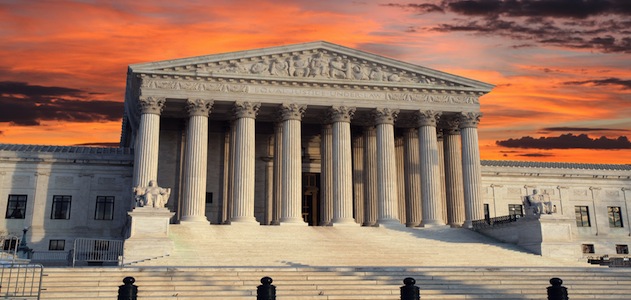Law firms, mortgage lenders and servicers were just awarded more protection in serving non-judicial foreclosures, according to a recent Supreme Court ruling.
The ruling is a victory for the mortgage industry in its fight to retrieve property from delinquent homeowners. One attorney claims the ruling may eliminate thousands of similar homeowner lawsuits.
In the case of the Obduskey v. McCarthy & Holthus decision from earlier today, the homeowner tried to fight his non-judicial foreclosure in Colorado.
Each state differs in foreclosure requirements, but generally fit into two category: foreclosures that get to be decided by the courts or foreclosures that are not — a non-judicial foreclosure. Colorado is a non-judicial foreclosure state.
Homeowner Dennis Obduskey alleged that once he received a foreclosure notice from law firm McCarthy & Holthus, he invoked protection under the federal Fair Debt Collection Practices Act.
This act protects consumers and maintains that: "a 'debt collector' must 'cease collection' until it 'obtains verification of the debt' and mails a copy to the debtor," the Supreme Court ruling states.
However, McCarthy & Holthus is not a debt collector by definition, as it only pursues non-judicial foreclosures, the Court ruled.
From the ruling:
Obduskey argues that McCarthy engaged in more than security-interest enforcement by sending notices that any ordinary homeowner would understand as an attempt to collect a debt. Here, however, the notices sent by McCarthy were antecedent steps required under state law to enforce a security interest, and the Act’s (partial) exclusion of “the enforcement of security interests” must also exclude the legal means required to do so.
"This decision essentially gives law firms and lenders more protection in non-judicial foreclosure states,” said David Scheffel, partner at law firm Dorsey & Whitney.
“In these jurisdictions, homeowners and borrowers will no longer be able to file lawsuits under the Fair Debt Collection Practices Act (FDCPA) against law firms who are pursuing foreclosures,” he added.
“This essentially eliminates a heavily used practice by plaintiffs' attorneys," Scheffel added. "Ultimately, this should have the effect of reducing the cost that lenders/servicers [bear] in terms of getting to a final foreclosure in these states as the FDCPA lawsuits delay this process significantly. At the end of the day, this decision will eliminate thousands of these lawsuits in non-judicial foreclosure states like Massachusetts, California, Colorado, and Minnesota.”






